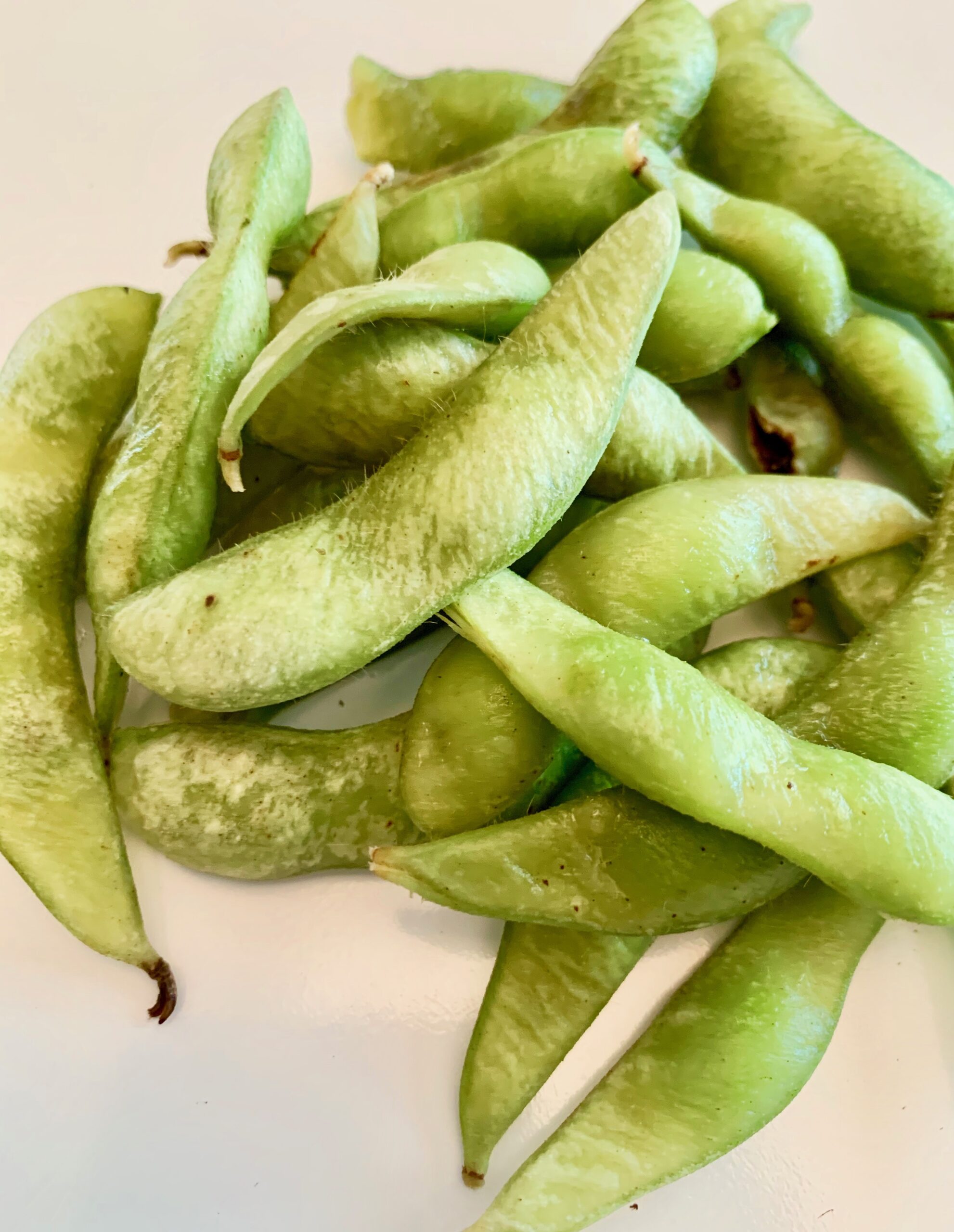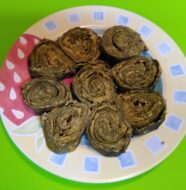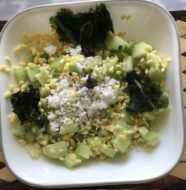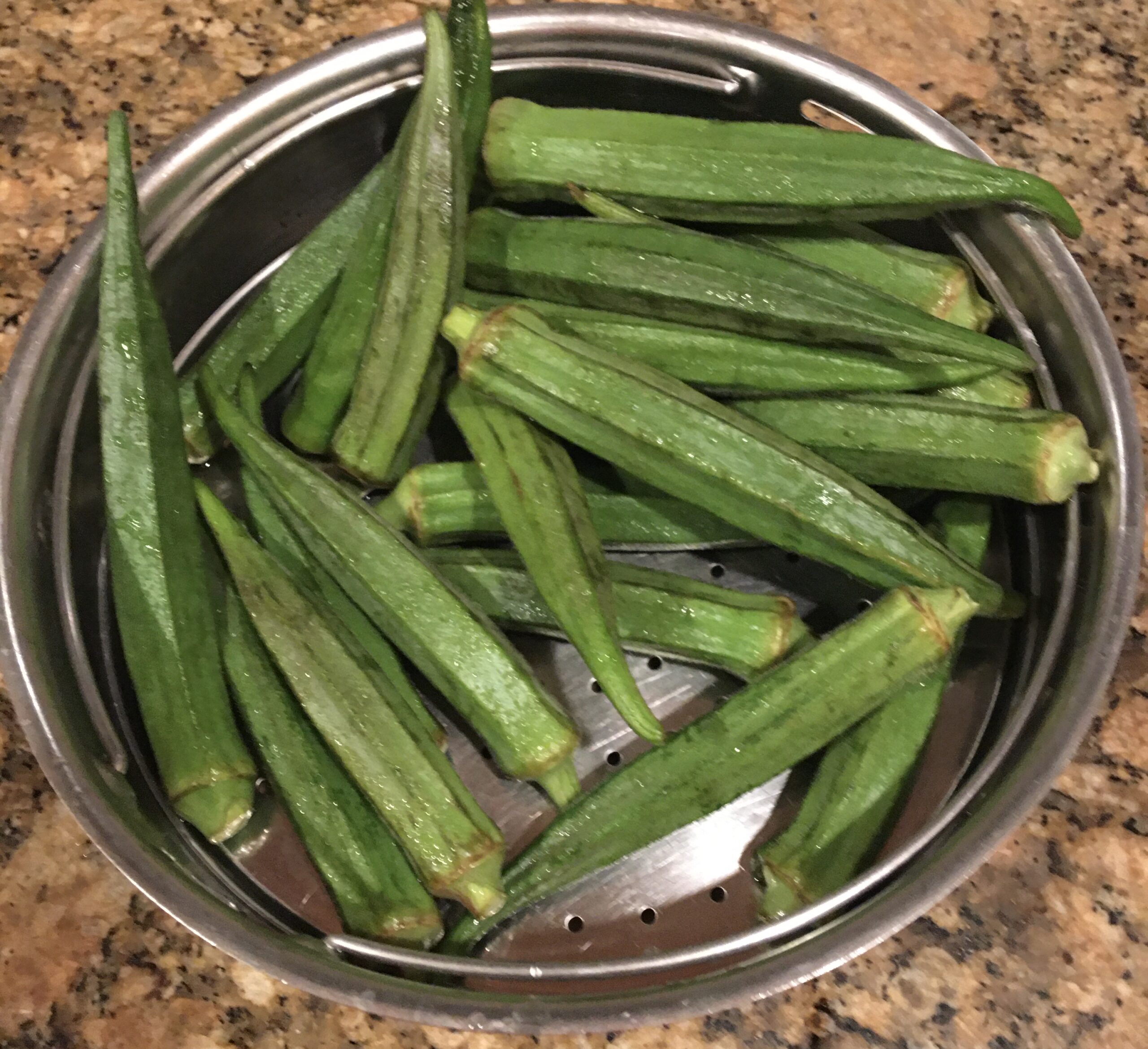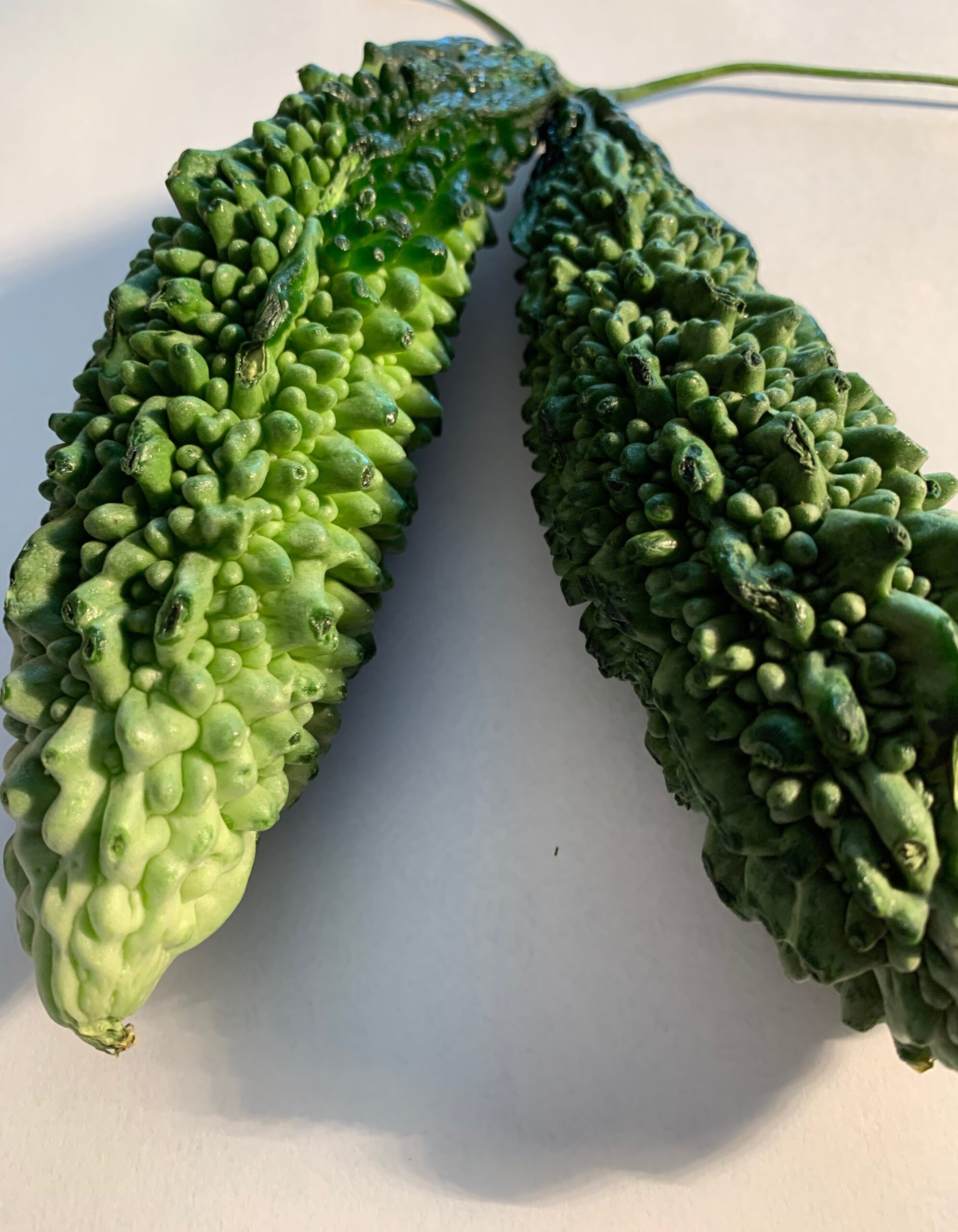Edamame is raw, young immature beans in the pod of a soybean plant. They play a vital role as an important source of plant protein like Wasabi in Japan. Binomially Edamame is an annual dicotyledonous plant belonging to the family of Fabaceae (Leguminosae) in the genus Glycine. Soybeans contain moderate amounts of vitamins, minerals, fibers, and plant sterols that help strengthen the immune system thus protecting the body from microorganisms, which may cause various health ailments.
“Shufta” is a North Indian preparation from Kashmir ( located on the foot of Himalayas), where pomegranates grow on grapevines. In this adapted recipe where edamame (soybeans), are cooked with special spices like cardamom and saffron, thickened milk (mawa), and yogurt to make an aromatic gourmet white curry that can be eaten with Kashmiri Pilaf. Mawa is thickened milk (in solid form ) where all its water is removed by evaporation where milk is boiled on low heat in an Indian wok (Kadai) for 6 – 8 hrs. available in the Indian grocery store.
History: The word edamame means beans on a branch. It has its roots in China dating back to more than 2200 years ago. It was introduced later to Japan where it has been popular since then. The soybeans are popular in East Asian Cuisine especially in Japan, Korea, and China.
http://edamameusa.com/facts.htm
Story: The royalty in Kashmir dined on rich food embellished with beans, fruit, nuts, and raisins. Food is very rich, cooked in ghee, or with “mawa- evaporated milk in a solid form”. The Kashmiri pilaf (Navratan pilaf) is cooked with vegetables like peas and carrots and garnished with dry fruits and pomegranates to symbolize nine gems. The ambiance for the gourmet food forms a beautiful setting on the DAL lake and in a wooden houseboat that provides a natural ornate environment.
Edamame Recipes
Steamed Edamame (Wafaa)
Edamame in Gravy (Shufta)
Edamame with coconut (Thoran)
Nutrition Facts of Edamame (Phaseolus Lunatus) 100g raw frozen
| GI 18 GL 4 Water 73 g |
Minerals | Vitamins |
| Energy 109 kcal – 5.5% | Sodium 6mg < 1% | Folates 303 mug – 76% |
| Carb. 7.6 g – 6% | Potassium 482 mg – 10% | Niacin 0.925mg – 6% |
| Protein 11.2 g- 20 % | Calcium 60mg – 6% | Pantothenic acid 0.535 mg – 11% |
| Total Fat 4.7 g – 23.5% | Copper 0.324 mug – 36% | Pyridoxine 0.135 – 10% |
| Cholesterol 0mg – 0% | Iron 2.11mg -26% | Riboflavin 0.265mg – 20% |
| Dietary fiber 4.8 g- 13% | Magnesium 224 mg – 56% | Thiamin 0.150mg – 12.5% |
| Sugar 2.2g | Manganese 1.672mg -73% | Vitamin A 0IU – 0% |
| Sucrose 1.12g | Phosphorous 161mg -23% | Vitamin C 9.7mg – 16% |
| Maltose 0.95 g | Zinc 1.32 mug – 12% | Vitamin E 0.72mg – 5% |
| Starch 1.51g | Vitamin K 31.4mug 26% |
Health Benefits of Edamame
- Edamame, a Complete source of protein: Soybeans are an excellent energy source for vegans. They have more protein than Chickpeas, Lentils, or Black beans. They possess all the essential amino acids viz. Leucine, Lycine, Threonine, and Tryptophan.
- Great source of Folate: a nutrient linked to lowering the risk of heart disease and strokes while supporting hair and nail growth.
- The fiber content in edamame helps improve digestion by preventing constipation; it also contributes to heart health and can help lower cholesterol.
- Magnesium in Edamame helps sleep better and relieve workout-related leg cramps.
- Healthy bones: Calcium content helps maintain bone strength.
- Edamame enhances lung functioning in patients suffering from chronic respiratory issues. Soy contains isoflavone Genistein with the ability to improve lung functioning.
- Edamame protects from cancer: a type of phytoestrogen called isoflavones appears to work with certain proteins to protect against cancer, heart disease, and osteoporosis.
- Edamame helps reduce insulin resistance, kidney damage, and fatty liver in people with diabetes.
- Edamame reduces the risk of heart disease and blood lipid profile – a measure of fats including cholesterol and triglycerides.
- Skincare: Antioxidants in Edamame help in maintaining healthy skin and repair damaged skin. Soy-derived isoflavone genistein has been found to show unique results on photoaging, skin elasticity, and skin cancer prevention. Soy also contains other isoflavones that help manage age-related skin transitions in postmenopausal women.
- Vitamin K in Edamame helps maintain a healthy metabolism, regulates calcium levels, and plays an important role in blood clotting. It is important to pair edamame with avocado, olive oil, or any other healthy fat to reap its benefits since vitamin K is a fat-soluble vitamin, so eating some fat with the beans will help absorb more of it.
- Weight management: Soy has a high protein content and fewer calories which makes it an ideal snack for weight-conscious people. Being rich in fiber 25% RDA helps maintain a healthy weight by slowing down nutrient absorption; this is good because sugar is absorbed slower, energy is released gradually and the body can neutralize those nutrients better.
- Word of caution: Soy consumption should be avoided if taking the drug ‘Tamoxifen” which antagonizes its effect in some types of breast cancer.
- https://www.wellandgood.com/good-food/edamame-benefits/
https://www.organicfacts.net/health-benefits/edamame.html
Spice Power
- Cumin seeds reduce the risk of diabetes: aids diabetes prevention by reducing the chances of hypoglycemia; according to a study on diabetic rats which were fed cumin for 6 weeks when a significant reduction in blood glucose was observed.
- Coriander powder prevents and cures anemia with high iron content (18mg/100g) which enables the proper functioning of systems in the body, promotes bone health., enhances strength and energy, and battles bacteria in the fight against foodborne diseases and hospital infections.
- Curry powder: reduces inflammation, fights cancer, combats Alzheimer’s disease with curcumin, aids digestion, cardamom and sweet basil present are vasodilators that can lower blood pressure thus reducing the chances of heart attack and stroke.
- Red chili powder: contributes to red blood cell formation and improves cognitive functioning.
- Cardamom powder: black cardamom is packed with antioxidants that can help with cold and cough. prevent bad breath, lower high blood pressure; cardamom tea helps in flushing out toxins.
- Saffron: increases circulation and metabolism; has anti-depressant properties; curbs appetite and reduces cravings to aid weight loss. added as an ingredient in some vision supplements to prevent early stages of macular degeneration. Useful in fending off Alzheimer’s disease by inhibiting the deposition of beta-amyloid plaques in the brain.
Method to cook Edamame Shufta
- Cook de-shelled Edamame in a container with salt in the microwave. (6 min)
- Mix milk powder with 1/2 cup hot water to form a paste.
- Dissolve saffron in hot water; whisk yogurt/soy/almond milk. (3 min)
- Heat oil or ghee in a frying pan.
- Add cumin, spices, milk paste, and saffron water.
- Stir well; bring curry sauce to a boil.
- Add pre-cooked edamame; allow to simmer in the white gravy until viscous. (8 min)
- Garnish with washed and chopped parsley leaves.
Serve Edamame Shufta with Kashmiri Pilaf, Pita Bread, Pasta, Chapatis or Pooris.
TIPS
Instant Mawa: Combine 1/2 cup evaporated milk with 1 cup milk powder
Microwave Saffron in a small bowl, crush and mix with water to prevent strands
Substitute milk powder with coconut milk,
almond or soy milk for gravy for vegans

